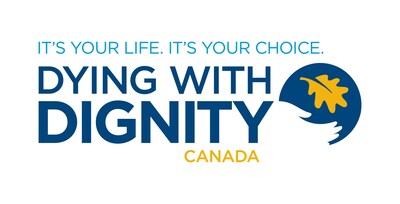Despite 82% support from Canadians across the country, and the approval of an all-party committee, advance requests for medical assistance in dying (MAID) remain illegal under the Criminal Code. Why is there no action from the government?
TORONTO, Jan. 18, 2024 /CNW/ – On February 12, 1994, with the assistance of an anonymous doctor, ALS sufferer Sue Rodriguez ended her life and suffering on her own terms. The previous year, the Supreme Court of Canada had ruled against her request for a legal assisted death. Her story ignited a national movement for the right to choose the timing of our own death when life becomes intolerable.
In 2016, medical assistance in dying (MAID) became legal for many but not everyone across the country. By far the largest group at risk are people diagnosed with capacity-eroding conditions who want MAID but may miss the window of opportunity to be assessed and approved for it. It’s estimated 600,000 Canadians are facing irremediable Alzheimer’s disease diagnoses, and 30 people a day are diagnosed with Parkinson’s disease. They may be stuck without choice – unable to ask in advance for MAID while they still have mental capacity to do so.
“My husband, who was diagnosed with early onset Alzheimer’s at the age of just 55, made it very clear – when he was able – that he did not want to live the way he is now: unable to walk, talk, or feed himself. I want Canadians with grievous diagnoses to have the option of MAID, rather than live in an advanced state of suffering.” – Susan Archibald, Vancouver [See video]
“After my dementia diagnosis, I put in writing the eight very specific conditions in which I would like to access an assisted death when I can no longer speak for myself. Unfortunately, advance requests for MAID are not currently legal despite overwhelming support across the country.” – Ron Posno, London, Ontario [See video]
Helen Long, CEO, Dying With Dignity Canada (DWDC): “We know this is an important issue to millions of people across Canada. We all know or have heard stories about someone who has suffered for years as a result of a capacity-eroding condition like dementia. DWDC is supporting a petition (e4726) to underline the urgent need for the government to amend the Criminal Code, to show compassion for suffering Canadians who want the autonomy to die on their own terms; over ten thousand people have signed the petition already.”
Dr. Konia Trouton, Canadian Association of MAID Assessors & Providers: “As clinicians and providers of MAID, we believe that it is possible to put workable protocols and safeguards in place to meet the concerns of all parties involved in advance requests for MAID.”
An Ipsos poll in June 2023 showed 82% of Canadians support amending the Criminal Code to legalize advance requests for MAID. That support was echoed by the final report of the federal government’s own Special Joint Committee on MAID, yet the government chose not to take action. Quebec isn’t waiting any longer and is moving ahead with legalizing advance requests in that province. What will it take for all Canadians to have the right to own their own life – and death?
Dying With Dignity Canada is the national human-rights charity committed to improving quality of dying, protecting end-of-life rights, and helping Canadians avoid unwanted suffering.
SOURCE Dying With Dignity Canada Inc.



